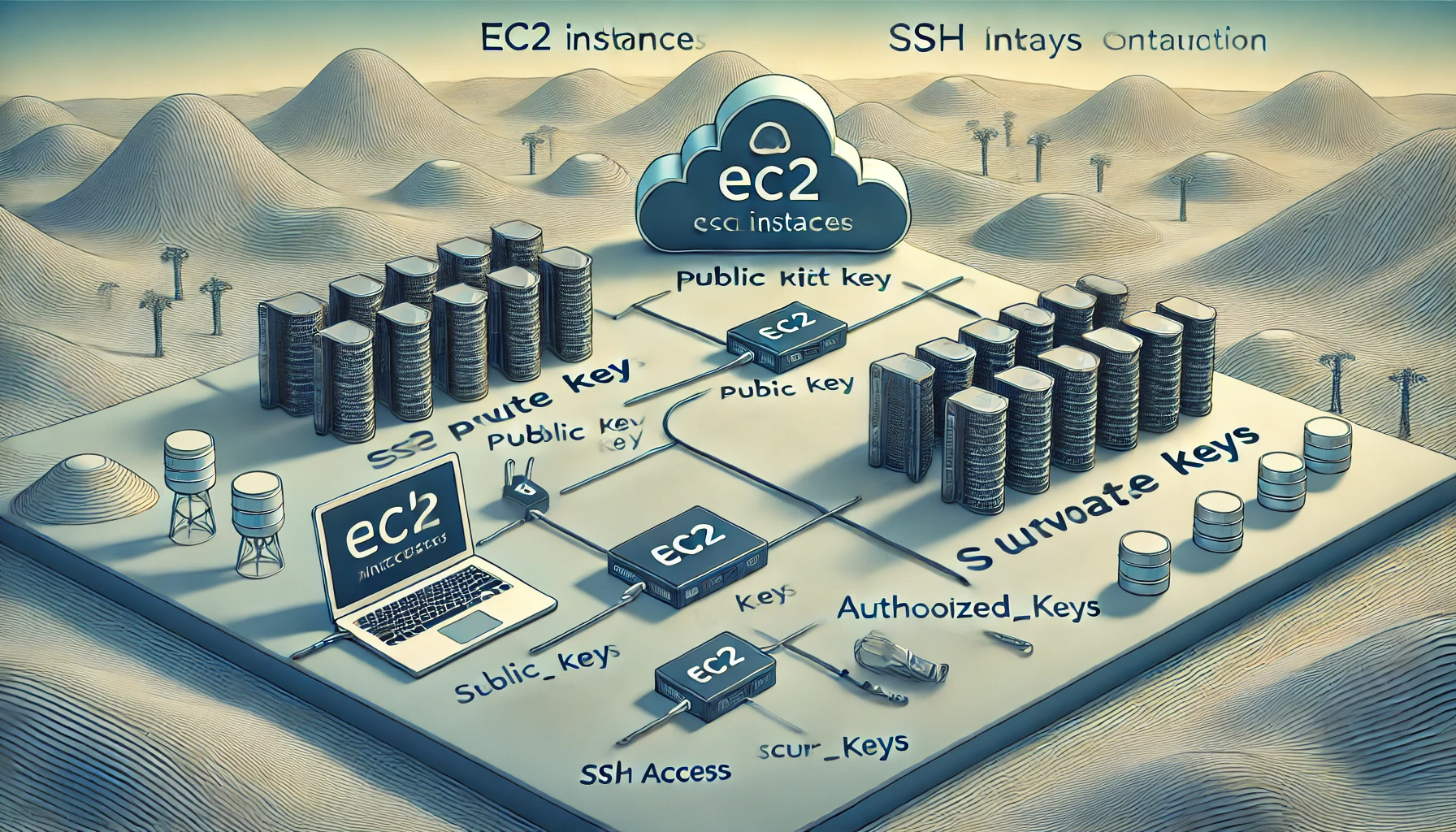EC2 Connectivity Made Easy: A Guide to SSH Access and Communication
 Anirban Banerjee
Anirban Banerjee
In today's cloud-driven world, Amazon EC2 instances are a cornerstone for deploying scalable applications. However, establishing secure connections between your local machine and EC2 instances, as well as between multiple EC2 instances, is crucial for seamless operations. This guide will walk you through the process of connecting to an EC2 instance using SSH and setting up communication between two EC2 instances.
Step 1: Connect Your Local Machine to an EC2 Instance Using SSH
Generate an SSH Key Pair on Your Local Machine
Begin by opening your terminal and generating a key pair with the following command:
ssh-keygen -t rsa -b 4096 -f ~/.ssh/my_ec2_keyYou'll be prompted to specify a file location for the key. You can choose the default or provide a custom path. This command will create a private key (
my_ec2_key) and a public key (my_ec2_key.pub).Set Permissions for the Private Key
Ensure your private key file has the correct permissions to maintain security:
chmod 400 ~/.ssh/my_ec2_keyConnect to Your EC2 Instance
Use the following command to connect to your EC2 instance:
ssh -i ~/.ssh/my_ec2_key ubuntu@<EC2_PUBLIC_IP>Replace
<EC2_PUBLIC_IP>with the actual public IP address of your EC2 instance.
Step 2: Connect Two EC2 Instances to Each Other Using SSH
Generate an SSH Key Pair on EC2 Instance 1
Once connected to EC2 Instance 1, generate a key pair:
ssh-keygen -t rsa -b 4096 -f ~/.ssh/instance1_keyCopy the Public Key from EC2 Instance 1 to EC2 Instance 2
On EC2 Instance 1, copy the public key to EC2 Instance 2’s authorized keys file:
ssh-copy-id -i ~/.ssh/instance1_key.pub ubuntu@<EC2_INSTANCE_2_PUBLIC_IP>Verify Configuration on EC2 Instance 2
Connect to EC2 Instance 2 and check if the public key from Instance 1 has been added:
cat ~/.ssh/authorized_keysYou should see the public key from EC2 Instance 1 in this file.
Repeat the Process for EC2 Instance 2
Similarly, generate a key pair on EC2 Instance 2:
ssh-keygen -t rsa -b 4096 -f ~/.ssh/instance2_keyCopy the public key from EC2 Instance 2 to EC2 Instance 1:
ssh-copy-id -i ~/.ssh/instance2_key.pub ubuntu@<EC2_INSTANCE_1_PUBLIC_IP>Test Connectivity Between EC2 Instances
Try to connect from EC2 Instance 1 to EC2 Instance 2 using the private key:
ssh -i ~/.ssh/instance1_key ubuntu@<EC2_INSTANCE_2_PUBLIC_IP>Similarly, connect from EC2 Instance 2 to EC2 Instance 1 using its private key:
ssh -i ~/.ssh/instance2_key ubuntu@<EC2_INSTANCE_1_PUBLIC_IP>
Additional Tips:
Always ensure the SSH private keys are protected using the right file permissions (
chmod 400).Make sure the Security Groups of both EC2 instances allow SSH traffic from each other's public IP addresses.
You can also set up SSH configuration files to simplify SSH commands by creating an alias for each server in the
~/.ssh/configfile.
By following these steps, you can securely connect to your EC2 instances and enable communication between them, ensuring a robust and efficient cloud infrastructure.
Subscribe to my newsletter
Read articles from Anirban Banerjee directly inside your inbox. Subscribe to the newsletter, and don't miss out.
Written by
